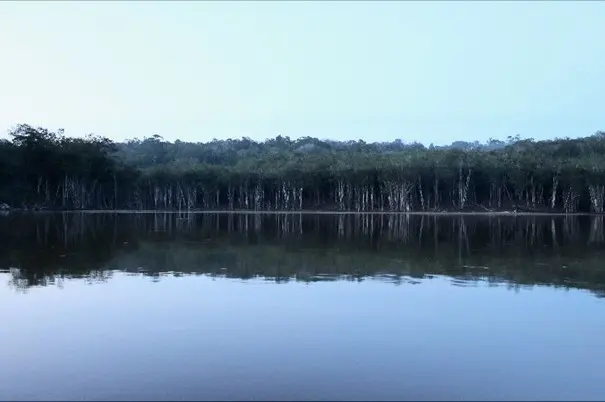Data basis for sustainable decision-making
The DISCAP project is setting out to develop data-based digital infrastructure that will enable fact-based decisions to be taken with a view to achieving sustainable consumption and production. This requires data on the environment and supply chains to be collated with green economic policy. The amount of work involved should not be underestimated, given that each country prepares and weights its data differently.

Climate change and its consequences are forcing many countries and companies all over the globe to check that their production processes and economic agendas meet sustainability criteria and are necessitating the realignment of these processes and agendas in many cases. If these endeavours are to yield measurable results, however, fact-based decision-making is required. The ZHAW research project DISCAP (Digital Infrastructure for Sustainable Consumption and Production), commissioned and funded by the UN Environmental Programme, is creating the necessary basis for this. Apart from the ZHAW School of Engineering, ETH Zürich and the University of St. Gallen are also participating in the project.
Decisions requiring a great deal of data
If, for example, a country wishes to save a specific amount of CO2 by reducing beef consumption, it first needs to know just how much CO2 is generated by beef production. This calls for a great deal of information, such as how much grazing land the cattle need, what they eat, where their food comes from, how is it produced and transported and how much forest has to be cleared for this. Data on supply chains and environmental monitoring needs to be collected and evaluated to this end. In this way, it will ultimately become clear that a 20% reduction in beef consumption, for example, results in an X% reduction in CO2. “In the final instance, it is a matter of improving a country’s economic policies and making them more sustainable”, explains Kurt Stockinger, Professor for Computer Science at ZHAW, who is leading the project at the School of Engineering. “Our contribution to DISCAP involves developing a method that uses machine learning to automatically aggregate, collate and evaluate information from text documents in the internet. This will ultimately produce a database to provide a basis for decision-making”, the ZHAW researcher says. It will also be possible to submit natural language queries – the EU’s INODE project has already created the necessary tools for this.
Each country collects its data differently
If, however, the digital infrastructure is ultimately to deliver fact-based decision-making aids, a sound data basis is required. Obtaining the data constitutes a complex challenge. “In some cases, the availability of data in specific areas differs greatly from state to state and from one company to another. Brazil, for example, is highly committed to monitoring the rainforest, while other countries hardly do anything”, says Kurt Stockinger giving an example. How do we then get hold of the missing data? “Many companies have no interest in making their supply chains transparent. We thus need economic incentives to get them to make this data available. In other areas, by contrast, there is a whole deluge of information out there, but it is difficult to use since it has not been prepared in a uniform manner. “Coronavirus is a good example here. There are basically three figures of relevance for the pandemic – the number of infected people, the mortality rate and the hospitalisation rate. But each country prepares these figures differently”, the ZHAW researcher continues. And that’s not the only challenge that has to be overcome.
Different perceptions of environmental policy
While DISCAP is aiming to create a database that will enable more sustainable decisions to be taken on production and consumption, many countries have different ideas of what measures are sustainable and conducive to environmental protection. “This has become particularly clear against the backdrop of the war in Ukraine. Beforehand, fracking as a method of extracting natural gas was regarded as an environmentally harmful technology. In the meantime, this method is under consideration again”, says Kurt Stockinger. To develop digital infrastructure of this kind for the UN thus not only requires sufficient equivalent data but also involves collating the individual countries’ different ideas of environmental policy. And this constitutes the greater challenge by a long way. “Our job is thus to create a database which specifically sets out the impacts of the different environmental policies”, says Kurt Stockinger in summing up ZHAW’s contribution to the project.
Contact
Prof. Dr. Kurt Stockinger, Professor of Computer Science at ZHAW School of Engineering, kurt.stockinger@zhaw.ch
DISCAP project page